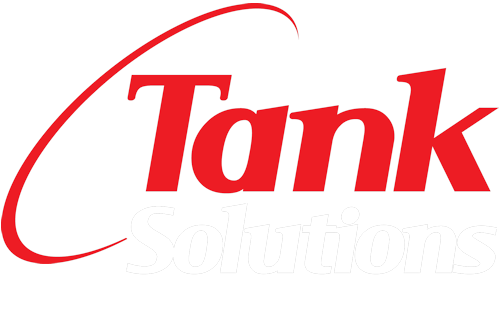When it comes to heating your home, choosing the right fuel source is a big decision. Heating oil is a popular option for many homeowners, especially in areas without natural gas access. But what exactly is heating oil, and is it the best choice for your home? In this post, we’ll explore what home heating oil is, its benefits and drawbacks, and how to decide if it’s right for you.
What is Heating Oil?
Heating oil, also known as No. 2 fuel oil, is a petroleum-based liquid used primarily for residential heating. Stored in an on-site heating oil tank—either aboveground (outside or in a basement) or underground—it feeds into a furnace or boiler to generate heat. Chemically similar to diesel, heating oil is refined for efficient combustion in home heating systems. Modern options like Bioheat, a blend of heating oil and renewable biodiesel, offer a more eco-friendly alternative.
Unlike natural gas or electricity, which rely on utility grids, home heating oil is delivered directly to your property. This makes it ideal for rural homes or areas without gas pipelines, providing independence from utility companies.
Benefits of Heating Oil
Heating oil offers several advantages that make it a compelling choice for certain homeowners:
- Independence: With your own heating oil tank, you’re not tied to gas or electric utilities, ensuring heat during outages or storms.
- Efficiency: Modern oil furnaces can achieve efficiency ratings of 85-95%, delivering powerful heat for cold winters.
- Flexibility: You can shop around for the best heating oil prices from multiple suppliers, unlike propane, where you’re often locked into one provider.
- Availability: Home heating oil is widely accessible, especially in regions like the Northeast U.S.
Drawbacks of Heating Oil
Despite its benefits, heating oil has some challenges to consider:
- Price Fluctuations: Heating oil prices vary with crude oil markets, which can make budgeting tricky.
- Tank Maintenance: Heating oil tanks require regular inspections, especially older underground ones, to prevent leaks.
- Environmental Risks: Underground tanks, common in homes built in the 1940s-60s, can corrode and leak, leading to costly cleanups.
- Delivery Logistics: You’ll need to schedule and monitor heating oil deliveries to avoid running out.
Is Heating Oil Right for Your Home?
Deciding if home heating oil is the right choice depends on your home’s setup, budget, and goals. Here are key factors to consider when asking, "Is heating oil right for me?"
1. How Old is Your Furnace?
The age and condition of your oil furnace are critical. If your furnace is new or in good shape, sticking with heating oil can be cost-effective, especially with a high-efficiency model. However, if your furnace is old (15+ years), consider whether upgrading to a new oil system or converting to natural gas (if available) makes sense. Converting to gas can increase your home’s resale value, as it eliminates the need for heating oil deliveries.
2. What’s the Status of Your Tank?
Heating oil tanks are a major factor. Underground tanks, often installed decades ago, have a lifespan of about 25 years. If your tank is underground and aging, it’s at risk of corrosion and leaks, which can lead to expensive environmental cleanups. We strongly recommend upgrading to an aboveground heating oil tank (either outside or in the basement) to avoid these risks. This is especially important if you’re planning to sell your home, as buyers often flag underground tanks as a liability.
3. What Are Your Fuel Options?
Compare heating oil to alternatives like propane or natural gas:
- Heating Oil vs. Propane: Propane requires a similar tank setup but is typically more expensive and less efficient. Plus, propane contracts often lock you into one supplier, limiting your ability to shop for better prices. Heating oil is usually the more cost-effective choice if gas isn’t available.
- Heating Oil vs. Natural Gas: If natural gas is available in your area, it’s often cheaper and cleaner than heating oil. It also eliminates the need for deliveries and tank maintenance, making it a low-hassle option. However, converting to gas involves upfront costs for new equipment and installation.
4. Are You Prepping Your Home for Sale?
If you’re planning to sell, an underground heating oil tank can deter buyers due to the potential risks of leaks. Upgrading to an above-ground tank or converting to natural gas can make your home more marketable. Natural gas is often preferred by buyers for its convenience and lower environmental footprint.
5. Are Environmental Concerns a Priority?
If you’re concerned about environmental impact, consider Bioheat, which reduces carbon emissions compared to traditional heating oil. Additionally, removing an underground tank as soon as possible minimizes the risk of soil contamination from leaks. Upgrading to an above-ground heating oil tank is a proactive step to protect your property and the environment.
Our Recommendation
For most homeowners with heating oil systems, the most cost-effective and practical option is to upgrade from an underground tank to an above-ground heating oil tank. This eliminates environmental risks, reduces maintenance concerns, and keeps heating costs manageable. If your furnace is relatively new, sticking with home heating oil is likely your best bet, especially in areas without natural gas access.
If natural gas is available and you’re planning to sell or stay long-term, converting may be worth the investment for lower fuel costs and increased home value. Avoid propane unless it’s your only alternative, as it’s pricier and less flexible than heating oil.
Tips for Heating Oil Users
- Shop Around: Compare prices from local heating oil suppliers to get the best deal.
- Maintain Your System: Schedule annual furnace cleanings and tank inspections to ensure efficiency and safety.
- Upgrade Wisely: If replacing an underground tank, choose an aboveground model for longevity and peace of mind.
- Explore Bioheat: Ask your supplier about Bioheat for a greener heating option.
Final Thoughts
Heating oil is a reliable, efficient, and independent heating solution for many homes, particularly in rural areas. However, its suitability depends on your furnace’s age, tank condition, fuel options, and long-term plans. By upgrading to an above-ground heating oil tank and maintaining your system, you can enjoy cost-effective heat while minimizing environmental risks. If natural gas is an option, weigh the benefits of converting for convenience and resale value.
Are you unsure if home heating oil is the right choice for you?
Contact our team for personalized advice or schedule a consultation to assess your heating system. Let’s keep your home warm and your budget happy!

